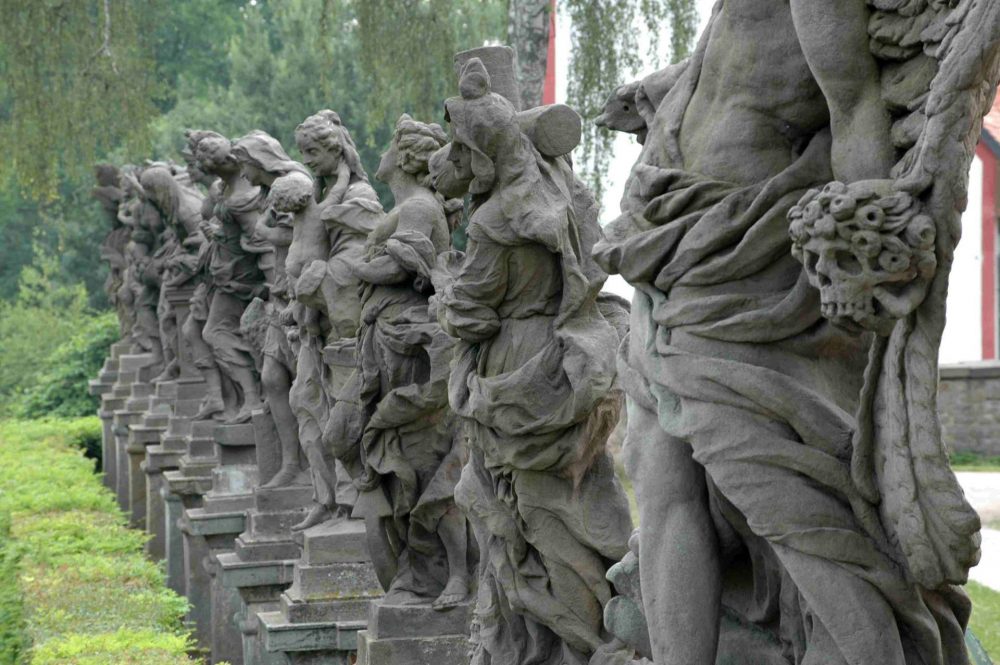Rev José Mario O Mandía
jmom.honlam.org
Let us now examine the first three of the seven capital sins or vices together and the respective cures for them.
VAINGLORY
Vainglory is a disorderly desire to manifest one’s excellence. It is an inordinate desire to receive praise from men and is the very opposite of John the Baptist’s attitude: “He must increase, but I must decrease” (John 3:30).
Vainglory springs directly from pride so it can be corrected by knowing and accepting the truth about oneself and about God. Thus, Saint Augustine prayed: “Noverim me, noverim Te” – “Lord, Let me know myself and let me know You.”
By knowing ourselves and knowing God better, we know our rightful place, we know where we stand. God makes use of circumstances which humiliate us to show us who and what we truly are – creatures of cheap clay. This is why we should make use of the humiliations which God sends us, because they are occasions God uses to make us know ourselves better.
Moreover, the supernatural virtue of faith, further enriched by the gift of wisdom which comes from the Holy Spirit, will help us grow in humility.
AVARICE
Avarice is the disorderly love of possessions or riches. This definition again shows us that there is such a thing as an orderly desire for possessions – we need these things to sustain ourselves, we need them for family life, we need them for our work. But when we exaggerate the value of material things, our hearts become enslaved by them. We become very possessive and anxious about material things. Avarice is born of insecurity. Jesus tells us, however, “Fear not, little flock, for it is your Father’s good pleasure to give you the kingdom. Sell your possessions, and give alms; provide yourselves with purses that do not grow old, with a treasure in the heavens that does not fail, where no thief approaches and no moth destroys. For where your treasure is, there will your heart be also” (Luke 12:32-34).
The cure for avarice is temperance in the use of material things and justice in the way we manage them.
We should also ask for the supernatural virtue of hope, which makes us place our hearts not on this world, but in Heaven.
Furthermore, we ought to ask the Holy Spirit for the gift of knowledge, which makes us capable of knowing the relative value of the things of this earth.
LUST
Lust is the disorderly desire for sexual pleasure. Sexual pleasure within marriage that is directed to the procreation and education of children is not only not disorderly but is holy because this is the will of God for marriage. It has been a part of His plan from the very beginning.
The cure for lust includes making good use of time and avoiding idleness; keeping away – or better, running away – from occasions of sin (readings, shows, conversations, and so on); custody or guard of the senses, especially the eyes, the memory and the imagination; constant and persevering prayer and the practice of presence of God; frequent reception of the Sacraments.
The cardinal virtues of prudence, fortitude, and temperance all play an important part here. We ought to ask also for the Holy Spirit to give us his gift of fortitude and fear of the Lord.
The capital sins are also called deadly sins, and that is particularly true of the vice of lust. We ought to remember the experience of King David who fell into idleness while his army was fighting and was not careful to guard his eyes. The Second Book of Samuel (11:1-15) narrates this tragedy in the life of David where he not only commits adultery, but also the sin of scandal (leading or causing others to sin) and murder as a consequence.


 Follow
Follow


